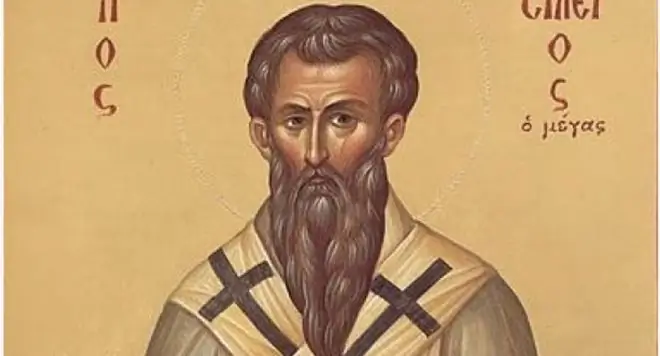- Author Antonio Harrison harrison@cultureoeuvre.com.
- Public 2023-12-16 07:44.
- Last modified 2025-01-22 21:44.
In modern Russia, the Old New Year is called the New Year according to the old calendar (style). This holiday currently falls on January 14th. The Orthodox Church celebrates several church holidays on this day.

First of all, it is worth noting that the Old New Year according to the church calendar falls on January 1st. That is why some representatives of the clergy call the day of January 14 directly the New Year. In addition, the Church celebrates especially on this day in honor of the memory of the event of the Circumcision of the Lord, and also commemorates the great Christian Saint Basil the Great.
The Feast of the Circumcision of the Lord is a memory of the historical event of the circumcision of Jesus Christ. The very tradition of circumcision of the foreskin among the Jews dates back to ancient times. Circumcision was considered a visible sign of a person's dedication to God. This was the manifestation of the faith of the Old Testament man in one God the Creator. Circumcision was considered mandatory for every faithful person; it was performed on the 8th day after birth. On the eighth day after the birth of the Savior, the Blessed Mother of Jesus Christ brought the latter to the Jerusalem temple so that the Old Testament rite of passage could be performed over the baby. Christ himself, according to his deity, had absolutely no need for circumcision, but he had to resort to this rite as a sign that the God-man came to earth not to violate the Jewish law, but to fulfill it, revealing to people augmented knowledge of God as the Trinity.
Also on January 14, the Church celebrates in memory of the great saint of the Christian Church, Basil the Great. This man is also called the great universal teacher and saint of the Church. Basil the Great was the archbishop of Cessaria in Cappadocia, an outstanding theologian and ascetic of piety lived in the 4th century (330 - 379). On January 1 (old style) 379, Saint Basil the Great ended his earthly life.
Basil the Great is known for his numerous dogmatic, moralistic, liturgical creations, which made a huge contribution to the development of the doctrine of the Christian Church and the formation of worship. In particular, Basil the Great wrote treatises in which he tried to clarify the mystery of the Holy Trinity, wrote famous talks about the six days of the creation of the world, and also created a special rite of the liturgy, which is still performed in all Orthodox churches ten times a year. The liturgy itself is still named in honor of Basil the Great.






